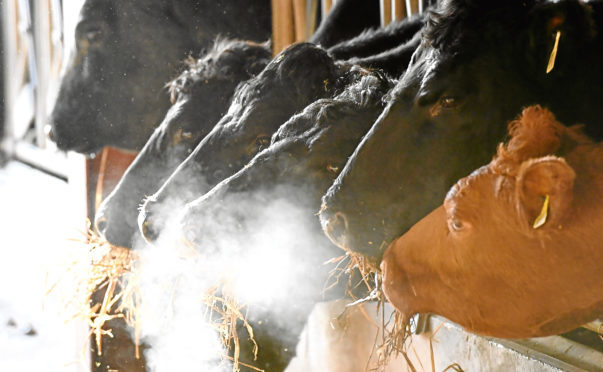Improved efficiency of beef and milk production could be a step closer following groundbreaking DNA analysis of the microbes found in the rumen of cattle.
Scientists at Edinburgh’s Roslin Institute and Scotland’s Rural College (SRUC), which led the research, hope the work will help identify which microbes are best at helping cattle to extract energy from their food.
They claim the work, which identifies enzymes that are specialised for breaking down plant material, could also help in the quest to develop new biofuels.
The study discovered that more than 900 micro-organisms – many of which were new to science – played a role in the cow’s digestion, giving a better understanding of how plant-based diets are converted into energy.
The findings, published in Nature Communications, also hold out hope of pinning down methods of reducing the methane production in ruminants, a by-product which is viewed both as a greenhouse gas and a waste of energy.
Professor Mick Watson, from the Roslin, said: “We are only beginning to understand what these microbes do. The fact most of them were very different to microbes that have already been discovered surprised us, so we just can’t wait to study them further.
“If we can improve the efficiency of digestion in cows and other ruminants, we may be able to produce more food for people whilst using fewer resources. This is a key aim of improving global food security.”
Professor Rainer Roehe, from SRUC, added: “The newly identified microbial species in the rumen of beef cattle will greatly improve our understanding of how the rumen microbial ecosystem works. Using breeding and nutritional interventions, we will be able to use this information to help improve cattle health and performance throughout the world.”
